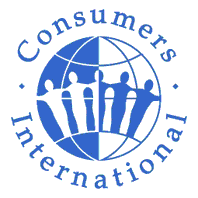Is Consumers International's Outrage Over-the-Top?

On the eve of the 3rd ISO Working Group on Social Responsibility, Consumers International - CI (A consumer advocacy group representing over 200 organizations in 100 countries), issued a strongly worded press release blasting the International Organization for Standardization (ISO) for limiting press access at the event.
In the release, Richard Lloyd, Director General of Consumers International says, "Big businesses love to tell anyone who'll listen just how socially responsible they are. Yet when it comes to media access to discussions on a global guideline for Social Responsibility, they slam the doors shut."
According to CI, industry stakeholders are positioning themselves to restrict press coverage to include only the opening and closing sessions of the plenary. The ISO Task Group responsible for this has published their operating procedures on media participation (here) and representatives of the different staekholder groups including the Industry Stakeholder Group list their response in this memo. "This", says CI, "will mean the media will not be privy to discussions about the creation of the ISO SR standard." A full copy of the CI press release can be found here.
The fact is there has been no decision on media access made by the ISO working group and in the absence of such a decision, ISO is deferring to its usual procedures regarding media access - but this does not preclude the working group on social responsbility from introducing its own procedures. Indeed, this is being planned in Lisbon. So CI's intervention at this point is a strategic one... but is its importance perhaps being overstated?
It is worth noting that all decisions regarding ISO 26000 and its processes are made by the working group at the closing session (which is open to media) on the basis of consensus which is defined by ISO as:
General agreement, characterized by the absence of sustained oppositionto substantial issues by any important part of the concerned interests and by aprocess that involves seeking to take into account the views of all parties concerned and to reconcile any conflicting arguments. NOTE: Consensus need notimply unanimity.
In such a process the exchange of ideas and mutual learning across stakeholder groups is essential. It is therefore critical to the success of the process that there exists safe spaces in which to exchange and debate ideas outside of the media spotlight. By insisting that all of the discussions be open to the media, it may have the unintended effect of driving all of these discussion underground - making the process even less open.
The call for transparency by CI is important - and we should all encourage an open and transparent standard development process, but this doesn't mean that the only way to achieve this is by granting unlimited access to the media. By framing the argument as such, we may in fact be decreasing transparency as individuals and organizations who need a space to learn and share from others to develop their nascent positions shy away because of media scrutiny. We need to embrace an open process while still allowing space for frank and open discussions to take place between various stakeholder groups so that real consensus building can occur.
To be fair the ISO working group coordinating this process had made significant efforts to encourage transparency by granting the public unprecedented access to all presentations, drafts, resolutions, etc. on the web at the following website. Transparency can yet be improved of course, but one can't help but wonder if CI's criticms are more strategic than substantial. We'll continue to track this issue at the Lisbon conference.












